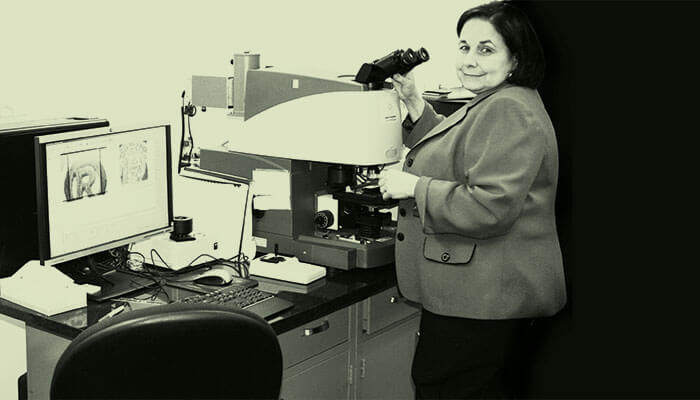
Recently, I was at a reception at a conference and a young woman I know came rushing out, almost crying because a young man had said something incredibly inappropriate to her. Until that happened, I would have said that things are getting better for women – that they are being accepted and respected more. I’m certainly starting to see young women get more opportunities, though I also see them worrying more about job prospects, particularly at the graduate and postdoctoral level (but that’s not just a concern for young women). I didn’t experience any sort of discrimination until almost 20 years into my career. After that experience, my radar just went off. I started to watch and think and talk about what the problems and issues are. I don’t think overt sexism exists – at least not the way it did. Thinking back to the first Pittcon I attended, many companies had models wearing lab coats that barely covered their behinds. Their job? To attract people – men – into the booth. For the most part, that’s disappeared in the field of analytical chemistry (thank goodness). But sexism still exists. There are still snide remarks.
I’m a middle-aged woman who grew up in New York City, so I make sure I am heard. But I’ve gone into meetings where a young woman comes up with an idea that no one is interested in, but then, all of a sudden, some guy says the same thing and now it’s his idea. The fact that discrimination is society-wide makes it very hard to tackle in a specific industry. I think – based on what I’ve heard from people in other areas – that the analytical sciences are slightly better. Maybe more women are represented in analytical science in industry, because it’s one of the chemistry fields that women have historically gravitated towards. Women are also – let’s be honest – often still responsible for childcare. And if you decide that your children are important, then you are not necessarily viewed as a fully-committed professional. A couple of my very good friends are in senior-level positions with analytical instrument companies. I suspect that I have never been able to get that type of position (and some of them agree with me) because when my kids were young, I said, “My kids are important. I’m going to work four days a week. I’m always available, but I don’t want my kids to think of me as an absentee mother”. But how does that translate to getting a step up in your career? There’s no way to put that in a resume. Nobody ever made a comment to my husband when he said he had to leave early to coach basketball. The first corporate meeting I went to at Hamamatsu, I was downright surprised at the number of young women who were represented in technical sales and in our technology group. It was very different than in prior positions. But in Hamamatsu the senior management is all male. I’ve only been at Hamamatsu two years, but I suspect that there are at least a couple of senior managers who don’t see ‘a young man’ or ‘a young woman’; they see who the most competent person to fill the position. I know – and I’m very glad – that happens. I just wish it could happen more often...
What I do and why I love it:
I have worked in a lab, in a consulting environment, for instrument companies and as an adjunct professor. Every one of my positions relied on my knowledge of spectroscopy and my desire to interact with people. My current position lets me talk to academics and start-ups and make connections. I enjoy the challenge of listening to someone talk about their research or a start-up idea and being able to think beyond the immediate need to where the idea can go. Working for an organization that supplies spectrometer engines, I find myself teaching spectroscopy to people who need to use the techniques but don't understand what they entail. I find that challenging.The Top 50 Women Power List…
Lists should be meritocratic; everybody should be viewed the same. But clearly, that doesn’t happen. Maybe an all-women Power List is one way of encouraging women to take the step up, advocate for themselves, and to give all women more exposure.A piece of advice…
Keep your eyes and ears open, because a lot of discrimination is subtle. Don’t feel that you have to take it. If you’re in an intolerable situation, get out and say something; there’s a legal system you can use. Make use of the tools that are available to you, and point out the discrimination. You can succeed.Ellen Miseo works in Technology Development for Hamamatsu Corp, but has worked in software development for some years. An expert in FTIR, she is also President of the Society for Applied Spectroscopy.
Towards Meritocracy Making Great Strides Leaning In An Ongoing Effort On Balance Beyond the ‘Old Boys Club’




